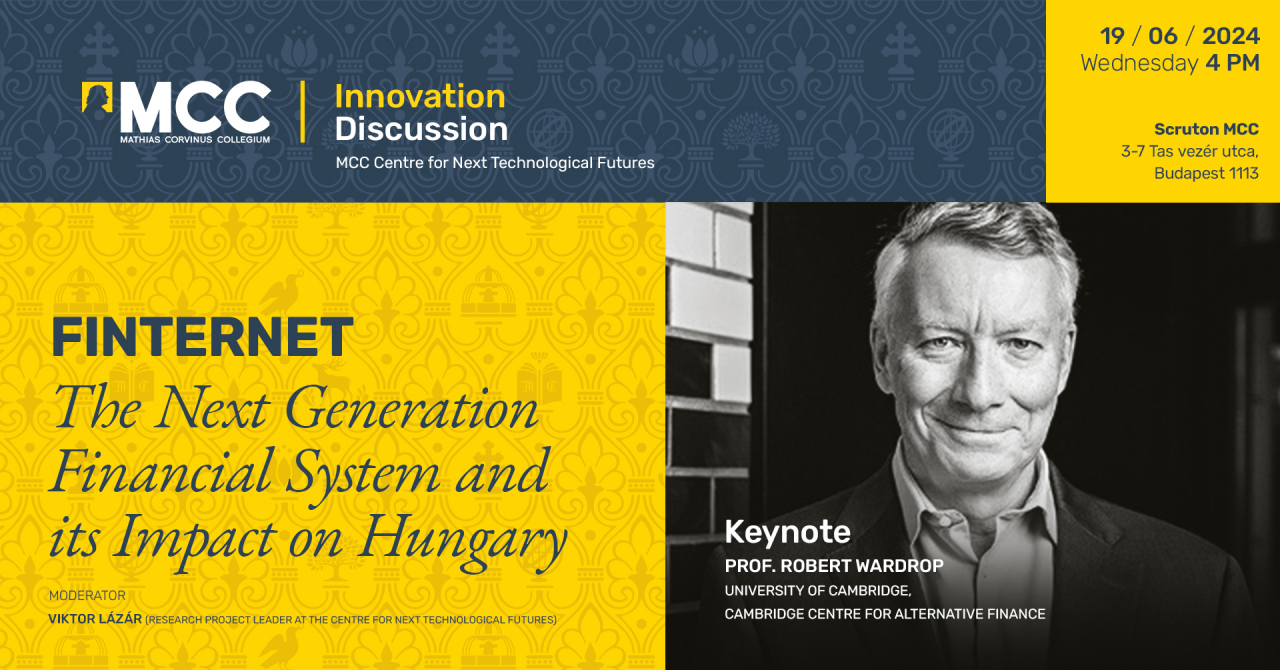The limitations imposed by the infrastructure underpinning the global financial system are well-known: the existing system is too costly, too slow, and is not accessible enough. There is growing acceptance by regulators that technological innovations which have been adopted outside of traditional finance, such as cryptography, can help address these limitations and will be the foundation for the next generation of the global financial system. A recent paper co-authored by Agustín Carstens, the General Manager of the Bank for International Settlements, provides a compelling vision of what this future financial system (the ‘Finternet’) may look like.
What are the implications of a Finternet for Hungary? While technological innovation is typically a double-edged sword bringing both positive and negative consequences, this Innovation Discussion proposes that this is a positive development for Hungary and enables it to exercise sovereignty within a more efficient and inclusive global financial system.
Prof. Robert Wardrop (University of Cambridge, Cambridge Centre for Alternative Finance) is an economic sociologist interested in understanding how and why channels and instruments of finance emerge outside the traditional financial system and how this impacts regulators, incumbent financial institutions and consumers. In addition to his role in the Cambridge Judge Business School, Prof. Wardrop is a member of the Steering Committee for the Cambridge Centre for Data-Driven Discovery (C2D3), an interdisciplinary research centre at Cambridge bringing together expertise from across academic departments and industry to drive research into the analysis, understanding, and use of big data.
Time of the Innovation Discussion: 19th June (Wednesday), 16:00, Scruton
Keynote: Prof. Robert Wardrop (University of Cambridge, Cambridge Center for Alternative Finance)
MODERATOR: Viktor Lázár (Research Project Leader at the Centre for Next Technological Futures)
Prior to pursuing his academic career in 2010, Prof. Wardrop had an international career as a professional investor, most recently as a Managing Director in the investment group of one of the largest privately-owned companies in the United States where he was responsible for a portfolio of European corporate debt and equity investments. He has held several board directorships and advisory roles with academic, governmental and commercial organisations over the course of both his academic and non-academic career.
For further information see: Robert Wardrop - Cambridge Judge Business School


